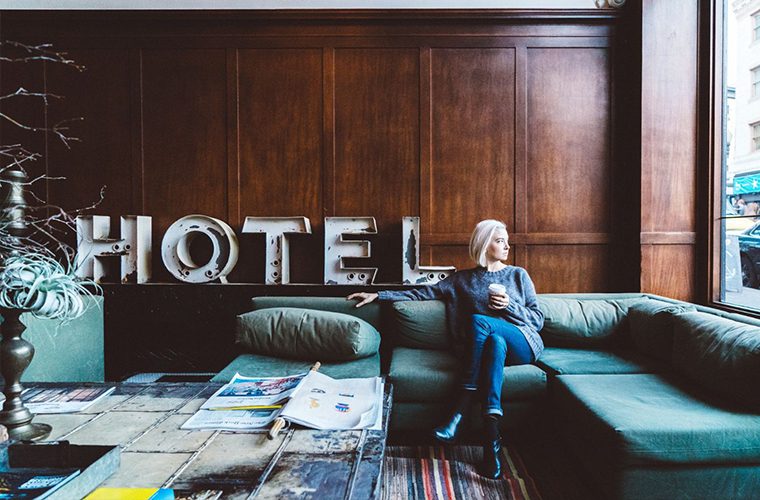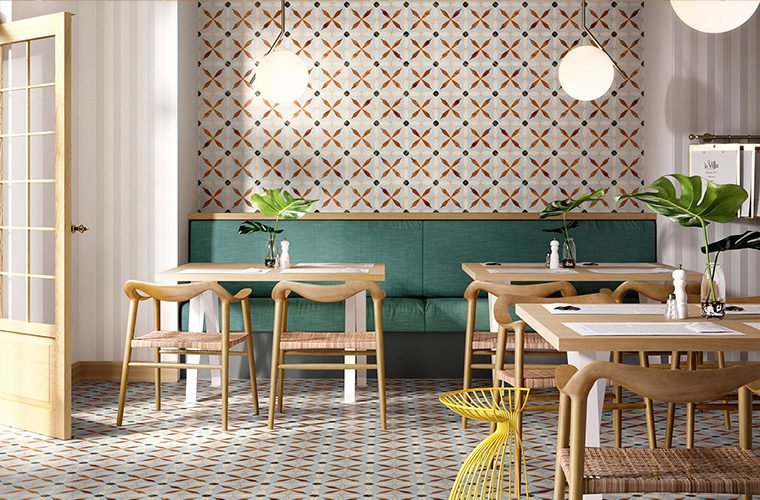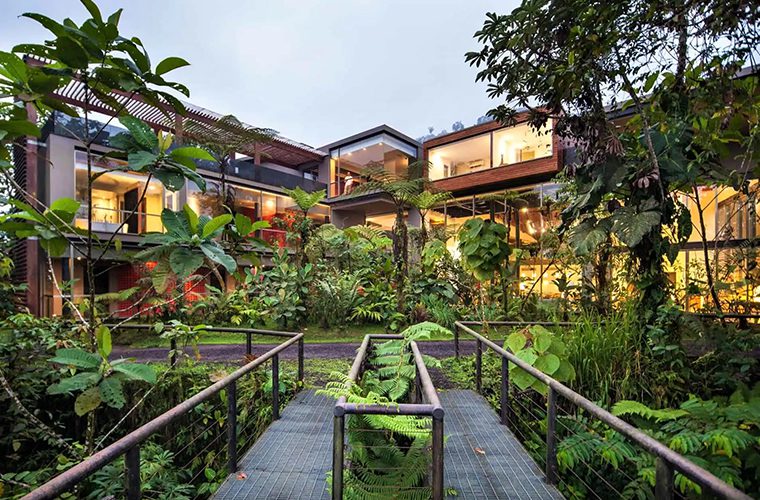
The travel industry has long been criticised for its high carbon footprint. From the carbon emissions related to the pressure tourism places on natural resources, the pursuit of opulence comes with a heavy price.
Therefore, with the climate crisis worsening, it should come as no surprise that there's been a recent uptake in interest regarding sustainable travel. Valued at £2.61 trillion ($3.3 trillion) in 2022, the global sustainable tourism market is expected to reach £9.02 trillion ($11.4 trillion) by 2032. As travellers increasingly demand eco-friendly, businesses operating in the hospitality sector are stepping up to the challenge and integrating sustainable practices into their hotel design.
Design features of sustainable hotels
Eco-friendly hotels offer eco-conscious travellers the chance to put their money where their mouth is and stay in a hotel designed to have a low environmental impact. To lower their environmental impact, sustainable hotel design encompasses a range of features:
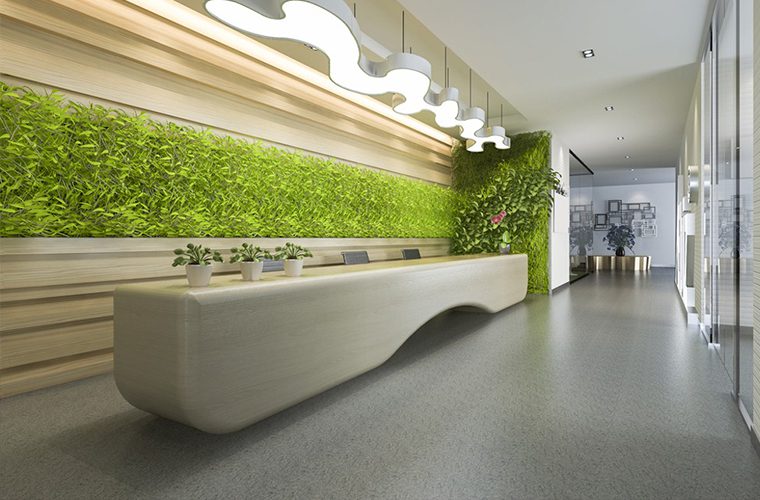
1. Saving energy
A standard feature across sustainable hotels is incorporating energy-efficient technologies such as LED lighting or using renewable energy sources like solar panels. Implementing these measures significantly reduces an establishment's energy consumption, helping to decrease carbon emissions.
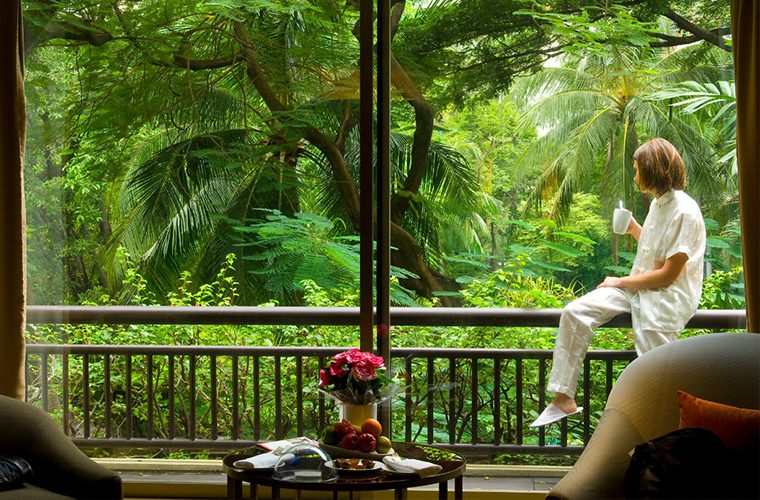
2. Use of sustainable materials
Running an eco-friendly hotel begins at the very start, during the construction of the building, as the choice of building materials plays a pivotal role in sustainable hotel design. Opting for recycled or locally sourced materials reduces the carbon footprint associated with the hotel build.
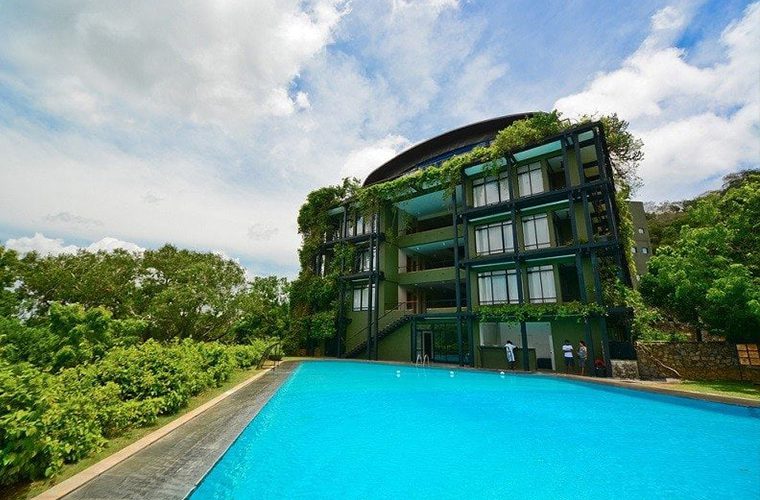
3. Water management
Water scarcity is a global concern. In fact, 50% of the world's population may be living in areas with scarce water supplies by 2025. Sustainable hotels are taking steps to address this by implementing water-saving fixtures and recycling greywater or harvesting rainwater.
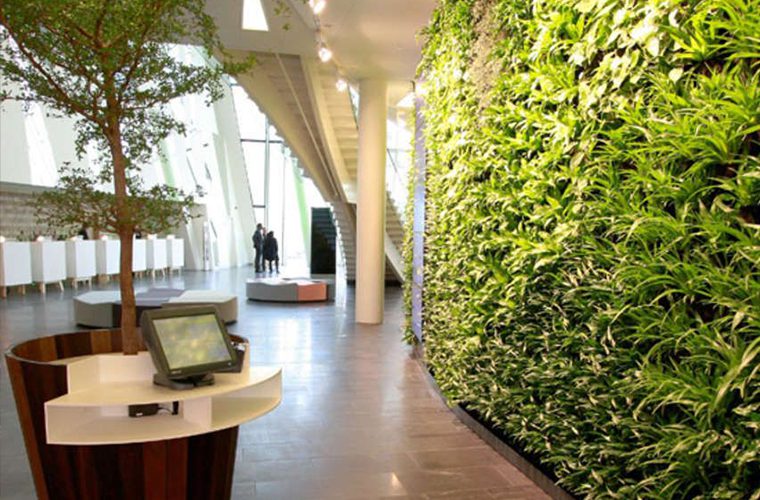
4. Green architecture
Naturally, an abundance of plants is an aesthetic associated with sustainability. However, the incorporation of vegetation extends beyond just aesthetic appeal. It can also help to improve air quality and even regulate indoor temperatures.
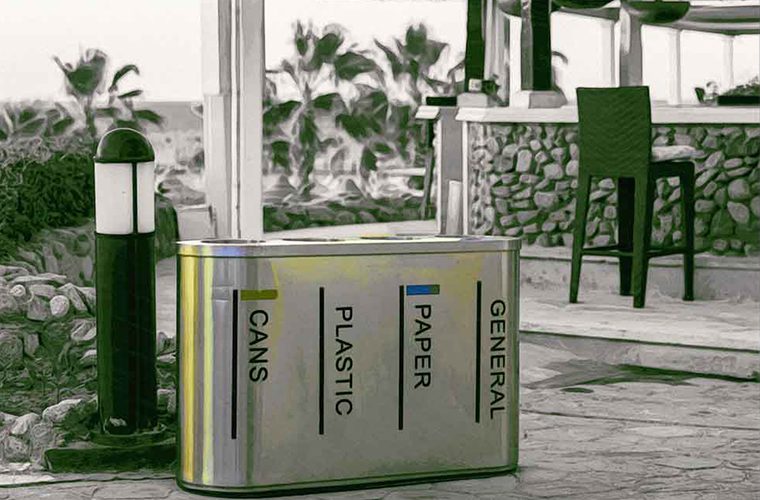
5. Waste reduction
In general, tourism is associated with excess consumption and huge amounts of waste. To combat the issue of excessive waste generation, a sustainable hotel would prioritise waste reduction and recycling. There are various ways this can be achieved, such as minimising the use of single-use plastics and encouraging guests to recycle.
Benefits of sustainable practices in hotels
Not only are sustainable hotels better for the environment than regular hotels, but they also offer a multitude of benefits for those running the business:

1. Cost savings
By using technologies that are energy-efficient and reducing resource consumption, the operational costs of the hotel are lowered, thus improving the business's bottom line.
2. Enhanced reputation
As consumers become increasingly concerned by their impact on the environment, more and more travellers are seeking eco-friendly accommodation options. Hotels that prioritise sustainability can attract these travellers and enhance their reputation.
3. Regulatory compliance
Many countries are implementing stricter environmental regulations. For instance, in the UK, The Environment Act was introduced in 2021, acting as a framework for the country's environmental efforts. Laws pertaining to food waste, for example, have changed, and sustainable hotel practices ensure compliance and minimise the risk of penalties.
Here at Dawnvale, we help those operating in the hospitality sector design visionary buildings and execute construction projects poised for the future. If you have a project in mind, and would like to discuss it further, then don’t hesitate to get in touch.

